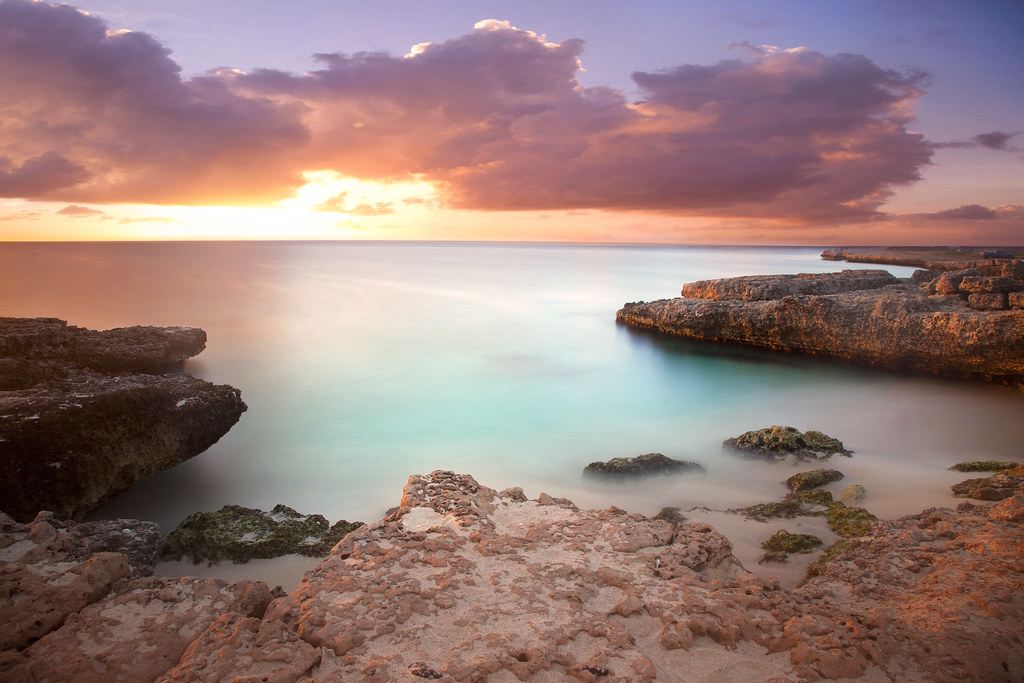
“‘Perfect Weather’, Aruba, Malmok, Coral Rock Sunset” by WanderingtheWorld (www.ChrisFord.com) is licensed under CC BY-NC 2.0.
Executive Summary
The COVID-19 pandemic has forced the European Territories in Latin America and the Caribbean—which are composed of the Dutch territories of Aruba, Bonaire, and Curaçao as well as the French territories of Guadeloupe, Martinique, and French Guiana—to quickly find a balance between preserving public health and ensuring economic survival. Each territory is heavily reliant on tourism as a driver of economic activity. The territories enforced strict lockdowns when COVID-19 began but have gradually adjusted restrictions as the number of cases increased or decreased and the populations have started to receive vaccines. However, with the usual number of tourists limited by travel bans and the fear of COVID-19, the governments are finding new and innovative ways to attract visitors. The European Territories vary in their national languages, socioeconomic statuses, and levels of internet access, but all host a wide range of residents and tourists. As a result, governments have used new technologies such as apps and social media as well as older techniques such as telephone hotlines and door knocking to educate vulnerable populations on COVID-19 measures. Critical COVID-19 documents have been translated into several languages so that all can understand them. As the territories seek to ease restrictions and improve the economy, many have conflicted with their parent governments. While some territories accuse France and the Netherlands of overstepping their authority, others feel neglected by the mother countries. These conflicts, combined with the increase of protests globally and in the territories over racial justice, are drawing renewed attention to present day colonialism and slavery reconcilliation movements. As the COVID-19 pandemic continues, the European Territories will have to continue to navigate their relationships with their parent countries while working towards a safe and inclusive recovery for all residents.
Jump to key trends for each rubric:
Key trends for Governance and the Rule of Law
The European Territories have responded quickly and efficiently to the COVID-19 pandemic as they seek to keep residents safe while avoiding economic disaster.
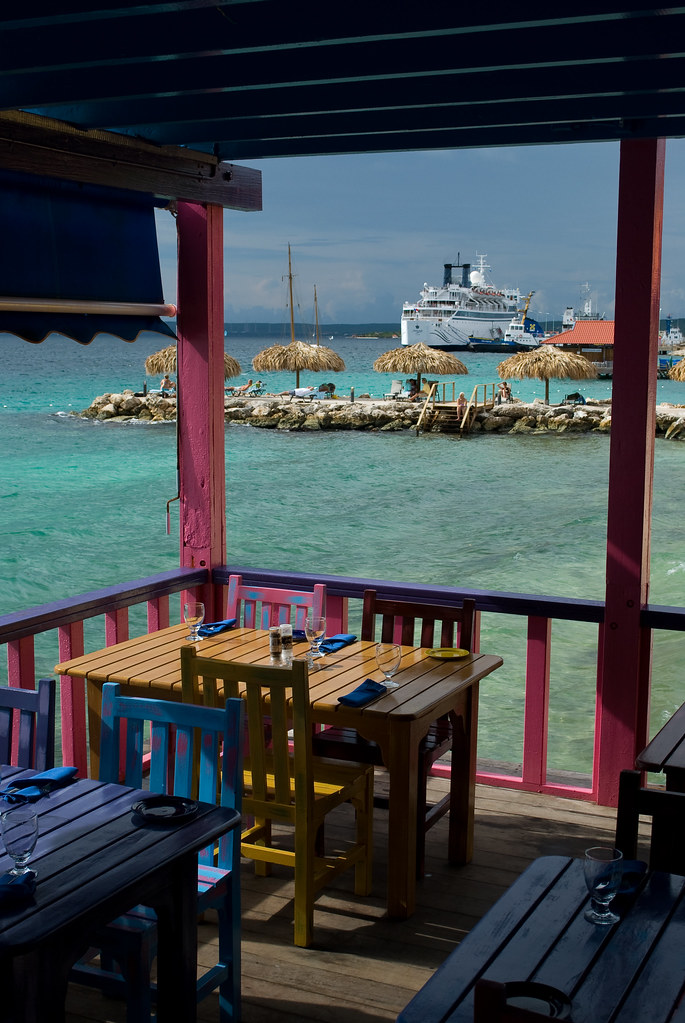
Increased restrictions with rising cases
The European Territories have increased flexibility with restrictions as circumstances are constantly changing. As COVID-19 initially began to spread around the world, the territories restricted flights and closed their borders to other countries. When cases began to rise in each individual territory, the governments responded by first closing high-risk spaces such as bars and imposing limits on gatherings. As the COVID-19 variant spreads in these territories, restrictions are being imposed in a more flexible matter. Although there are no full lockdown measures, curfews are still in place with the hours of them changing on a monthly, sometimes weekly, basis. This is causing frustration for workers and storefront owners. The governments are willing to lift regulations when cases are low and medical capacity is high but have shown they will increase lockdown measures if COVID-19 cases increase.
An empty table at a resort restaurant in Bonaire. “Divi Flamingo Resort – Bonaire, Netherlands Antilles” by Timothy Wildey is licensed under CC BY-NC 2.0.
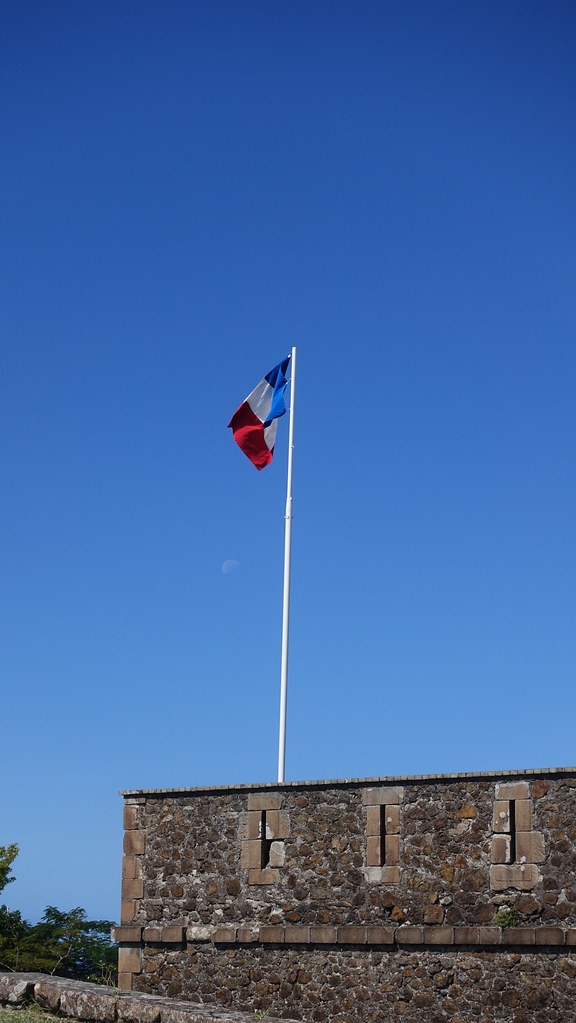
Tensions with parent countries
The political and economic response to COVID-19 has increased tensions between the European Territories and their parent countries. The Netherlands has conditioned financial support for Aruba and Curaçao on a series of reforms, but it has taken months of negotiations for islands and the Netherlands to agree on how these reforms will be administered. The islands see a Dutch regulatory agency as an invasion of their autonomy. Martinique has faced a similar fight for autonomy as France has mandated that the island follows lockdown measures, even as those measures damage the economy of the island. On the other hand, both French Guiana and Bonaire have called for more help from the parent governments. Bonaire health care workers were excluded from bonus hazard pay that Dutch mainland medical workers were given, while French Guiana is still waiting for a hospital to be built that the French government promised after protests in 2017.
The French flag flies over a fort in Guadeloupe. “French flag at Fort Napoléon, Terre-de-Haut” by David Jones is licensed under CC BY 2.0.
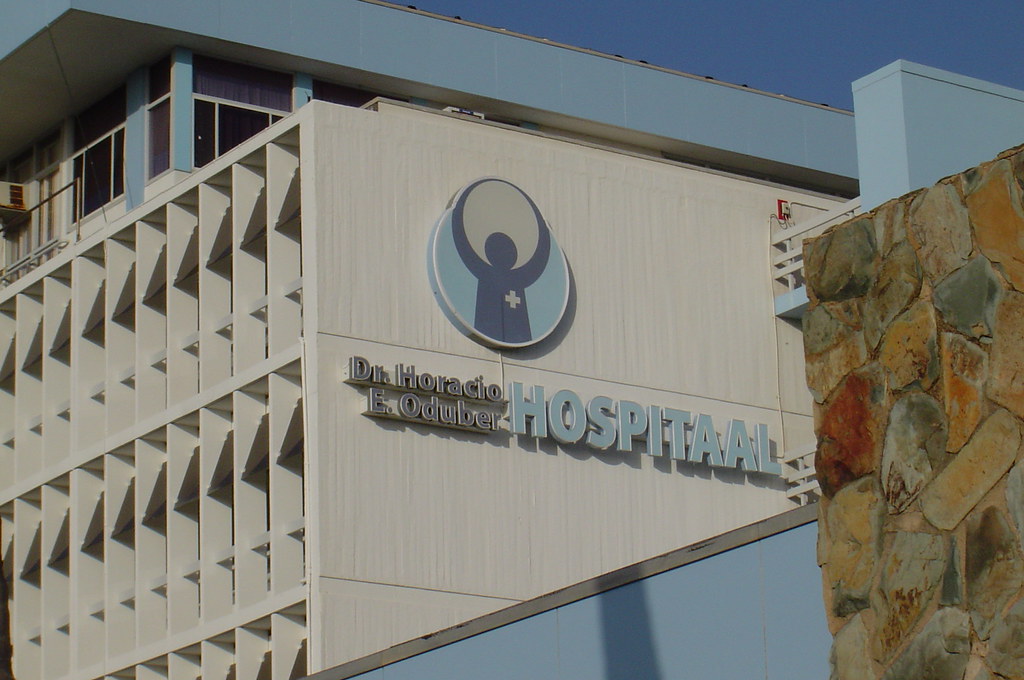
Vaccination rollout
All territories have begun to administer vaccines to their residents. Although there have not been many issues with vaccine supply, hesitancy among residents to get vaccinated has slowed the pace of the rollout. Local governments have launched extensive campaigns to educate the populations on vaccine safety and effectiveness and implemented outreach efforts to increase vaccination rates. For example, Bonaire has mobile vaccine busses that are traveling to underserved areas in order to vaccinate those neighborhoods. While the governments are working to increase vaccination rates for citizens, undocumented immigrants in Aruba have faced challenges due to ID laws at vaccination sites. French Guiana has had a hard time protecting its borders from the Brazilian COVID-19 variant with Brazilian citizens illegally crossing to receive the vaccine from the territory’s vaccine spots. The European territories are pushing vaccination campaigns to get the population fully vaccinated as soon as possible to subside the increase of cases.
A hospital in Aruba. “Aruba Hospital 4” by Gerard’s World is licensed under CC BY-NC-ND 2.0.
Key trends for Growth and Innovation
The European Territories have been forced to adapt new methods to attract tourists as lockdown measures and border closures result in significantly less economic activity.
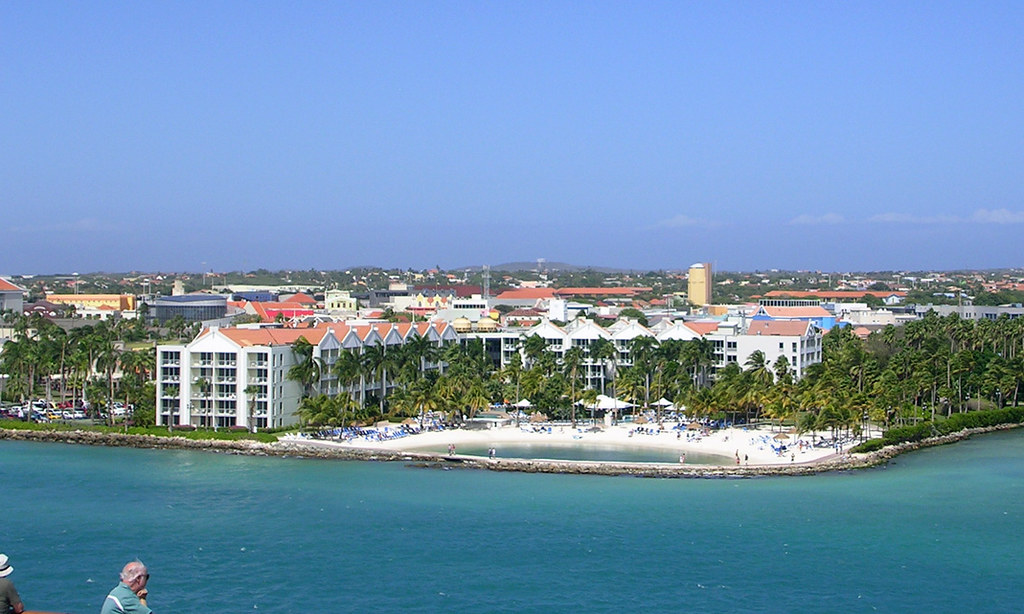
With declining tourism, an economic hit
The European Territories have been devastated by dramatic decreases in the levels of tourism. They serve as popular vacation destinations for tourists both from their respective parent countries and the U.S. Early border closings severely limited the number of visitors, and COVID-19 fears keep guests away from territories that have opened borders. Additional restrictions have created new barriers for travel as well; while a traveler may be able to meet the requirements to enter the territories, they may not want to go through the effort. Bonaire has faced push back from business owners because the rapid testing requirement is discouraging visitors, even though borders are open. Parent countries have played a large role in controlling the flow of tourists. With the introduction of the new COVID-19 variant, many restrictions placed by parent countries like curfews and restaurant closures are still in place. This decline in tourism has created widespread unemployment and economic hardship throughout the European Territories.
A resort hotel seen from a cruise ship leaving Aruba. “Leaving Aruba – Resort Hotel” by roger4336 is licensed under CC BY-SA 2.0.
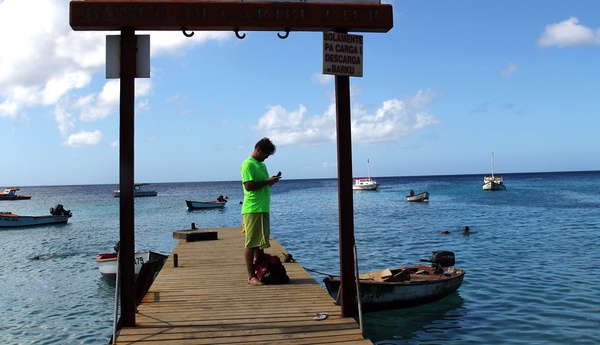
Using technology to fight COVID-19
The territories have used both new and old technology to fight the spread of COVID-19. Apps have aided contact tracing efforts, improved access to doctors, and increased knowledge of safety measures. The French government has launched a contact tracing app in each territory to notify users who have been in the presence of someone who tested positive, while the Curaçao and Aruba Public Health Departments have created apps aimed specifically at visitors. These apps contain public health advice, information on current regulations, and contact information for COVID-19 hotlines. Each territory also has a telephone hotline for individuals to access information related to testing, quarantine procedures, and treatment. Currently, the apps and hotlines are being used for residents to schedule their COVID-19 vaccine appointment, facilitating the distribution process. Additionally, all territories maintain websites with the most updated safety measures and resources. This technology enables constantly changing information to spread quickly throughout the territories.
A man uses his phone on a dock in Curaçao. “Playa Piskado” by Prayitno / Thank you for (12 millions +) view is licensed under CC BY 2.0.
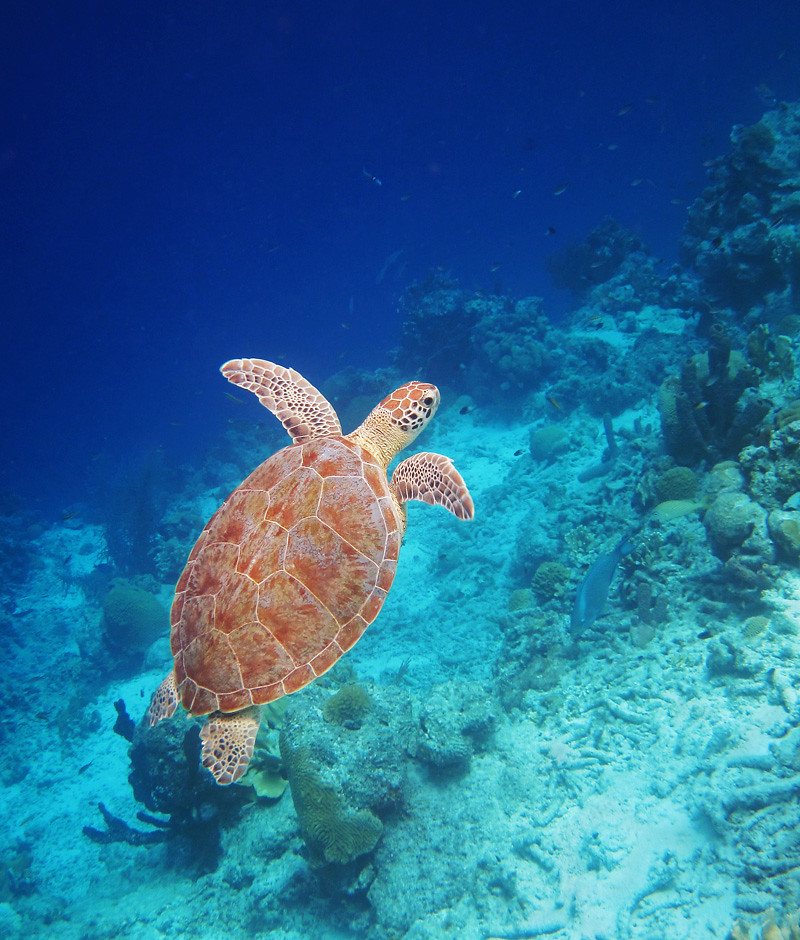
Innovative ways to attract tourism
The European Territories have sought new and innovative ways to attract tourism despite restrictions and COVID-19 fears. Guadeloupe’s tourism-focused website is specifically targeted towards U.S. travellers. They are advertising safety measures being implemented in the island and reassuring tourists that travel will resume shortly. Aruba, Curaçao, and Martinique have similar tourism websites that use bright colors, beach images, and sample itineraries to attract potential visitors. As more and more white-collar workers in wealthy countries have transitioned to remote work, Aruba has advertised special deals for “workations” to encourage travellers to temporarily relocate to the island and work remotely for an extended period. They have also collaborated with local hotels to create standardized cancelation policies and discounts specifically for families and weddings. Additionally, the territories have engaged in partnerships with companies such as AirBnB and JetBlue to make it easy for American tourists to travel to the region. The French territories have set up testing centers at their destination airports for visitors. Bonaire has continued to develop its Strategic Tourism Plan and Blue Destination Concept to create sustainable eco-tourism during the COVID-19 recovery. Although tourism has sharply decreased, the territories hope to use strategic advertising and new ideas to bring back travellers.
A turtle swims off the coast of Bonaire. “Snorkeling Bonaire – Perfect Turtle” by TropicalSnorkeling.com is licensed under CC BY-NC-ND 2.0.
Key trends for Social and Cultural Inclusion
Global protests and pandemic restrictions have highlighted socioeconomic inequalities and the legacy of colonialism in the European Territories.

Outreach to vulnerable communities
Vulnerable communities throughout the territories have suffered the worst effects of the pandemic. Governments are attempting to reach these populations by eliminating language barriers, increasing accessibility to health resources, and utilizing several different communication techniques. Aruba and French Guiana have translated COVID-19 resources into several languages and French Guiana has created easy to read and understand (FALC) resources for those with comprehension challenges. Additionally, healthcare workers in French Guiana have gone door-to-door in rural communities without internet access to raise awareness of COVID-19. Martinique and Guadeloupe have used TV, radio, and billboard advertisements to communicate government recommendations to as many people as possible. Spanish language COVID-19 hotlines in Aruba and Curaçao have helped individuals without documentation, many of whom are Venezuelan refugees, access health resources and testing. Bonaire has ensured that testing is free and open to all, including undocumented immigrants. The French territories ensured that vaccines will be distributed at no cost to all residents. By using multiple methods of communication the territories can connect with vulnerable populations to prevent future outbreaks.
A radio station in Aruba. “Radio Studio” by Gerard’s World is licensed under CC BY-NC-ND 2.0.
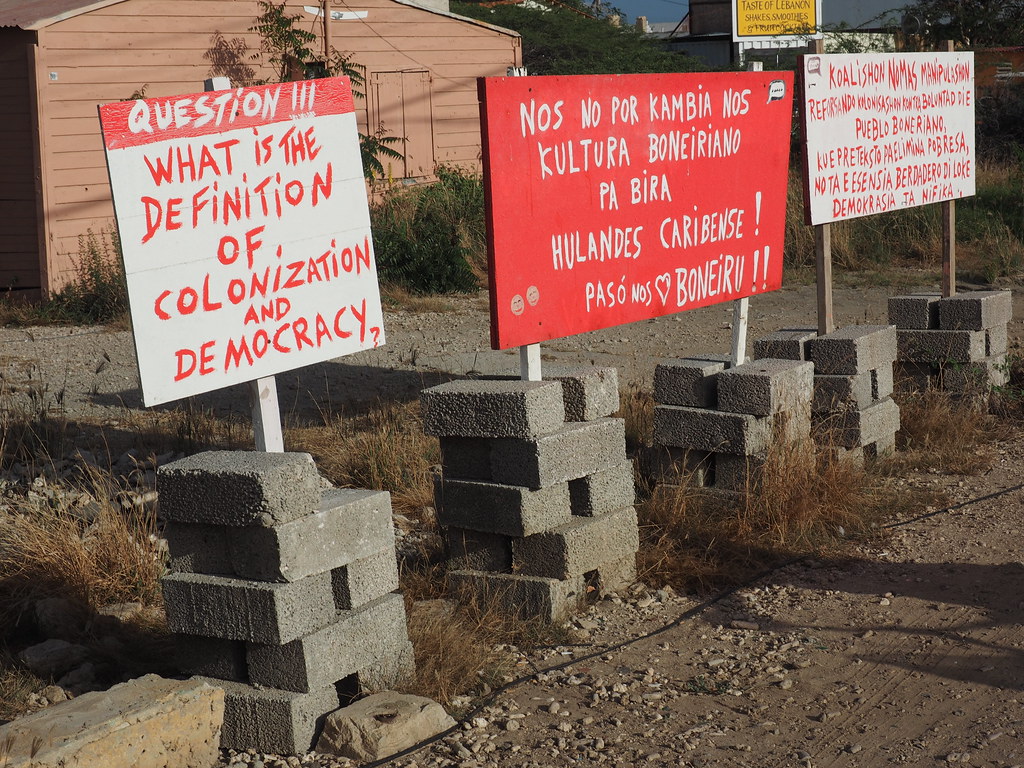
Reckoning with colonial history
Global protests and pandemic restrictions have highlighted movements to reckon colonial history with life today in the European Territories. On Martinique and Guadeloupe, citizens continue to push back against colonial symbols by destroying statues that honor colonial leaders. In Bonaire, the 10th anniversary of the island’s transition from part of the Netherlands Antilles to a special municipality coupled with the perceived lack of COVID-19 support from the Netherlands has renewed criticisms of the Dutch colonial system. Additionally, The National Archives in Aruba continues to research the history of slavery on the island and has recently published an extensive registrar of enslaved people brought to the island since 1839. These efforts to acknowledge and work against the legacies of colonialism and slavery are not new but have received increased attention since the pandemic began.
Protest signs in Bonaire demanding an end to Dutch colonialism. “Protest Signs Bonaire” by killkudzu is licensed under CC BY-NC 2.0.
What to Watch:
The European territories’ plans to completely reopen their borders got interrupted by the introduction of the COVID-19 variant. Some territories, such as French Guiana, never got the chance to open their borders. Others, like Aruba and Bonaire, have introduced additional testing requirements or paused travel from specific countries. As new variants are discovered and spread, more countries may impose additional restrictions. Additionally, it is important to monitor the territories as vaccination programs roll out. Although the distribution of vaccines seems organized and inclusive in all territories, most residents are reluctant to get it. For example, in Guadeloupe, according to a study conducted by the Agence de Santé (ARS), only 20% of the population are willing to receive the vaccine as soon as possible. It is essential to see if residents gain trust as time progresses and vaccines are widely distributed.
The relationship between the territories and their parent countries must be monitored closely as well. All territories are experiencing increased tensions with their parent countries as the COVID-19 pandemic exacerbates the territories’ lack of autonomy. Aruba, Curaçao, Guadeloupe, and Martinique are fighting for more autonomy as their parent countries mandate policies that the territories are not in favor of. Meanwhile, French Guiana and Bonaire are fighting for increased support and financial assistance. It is important to watch for parent governments implementing aid programs with substantial conditionalities, neglecting aid to certain territories, and further attempting to assert control while the territory governments attempt to assert their autonomy.